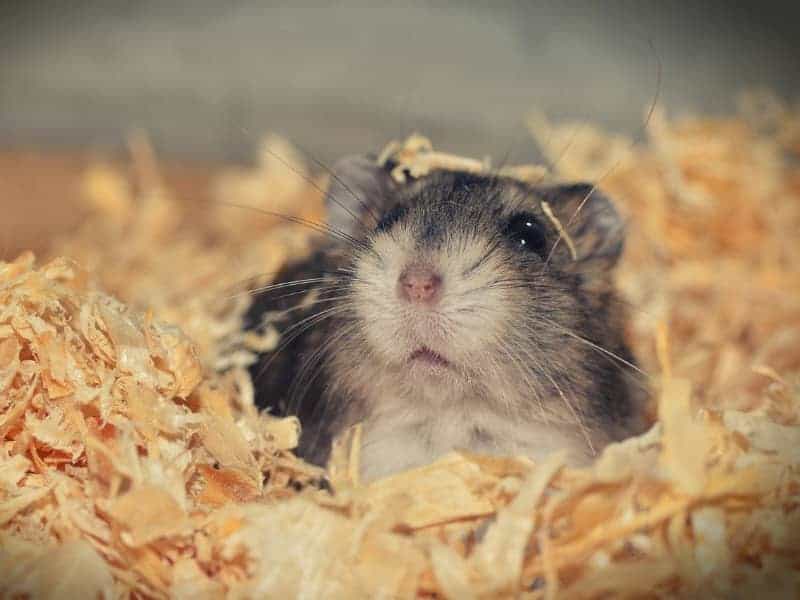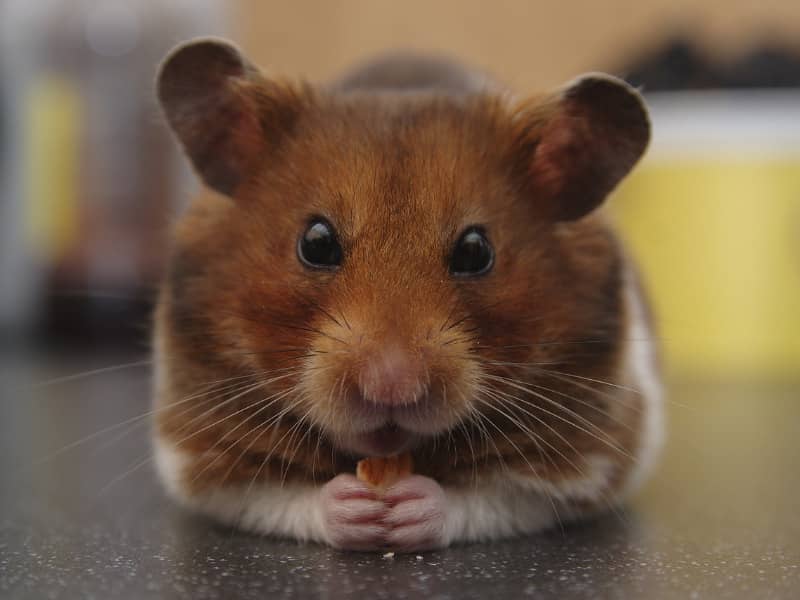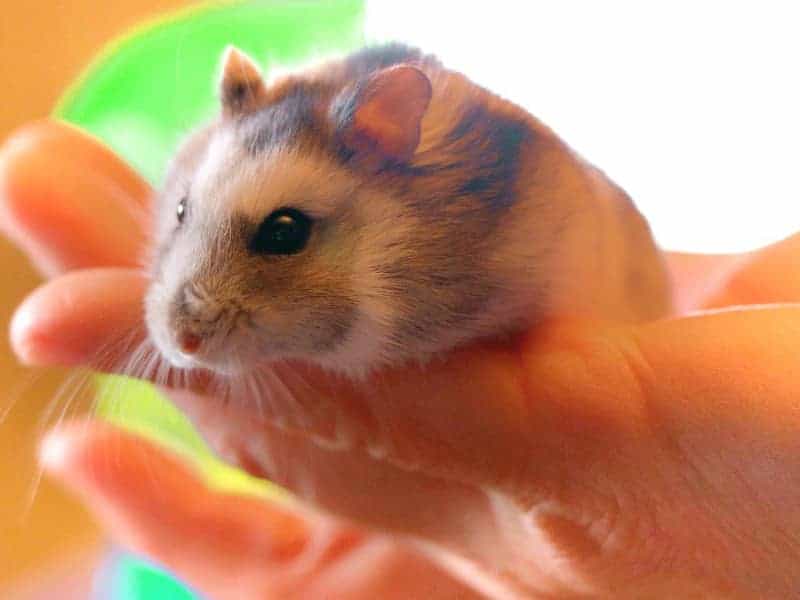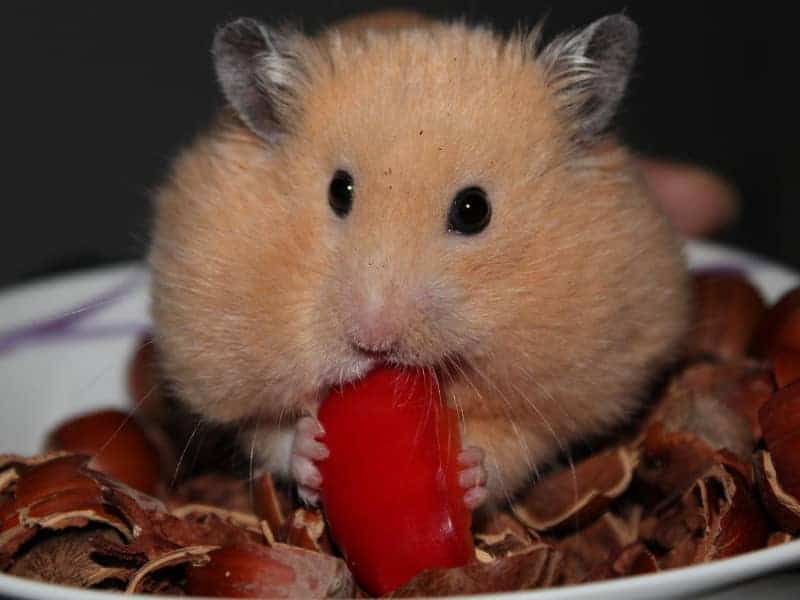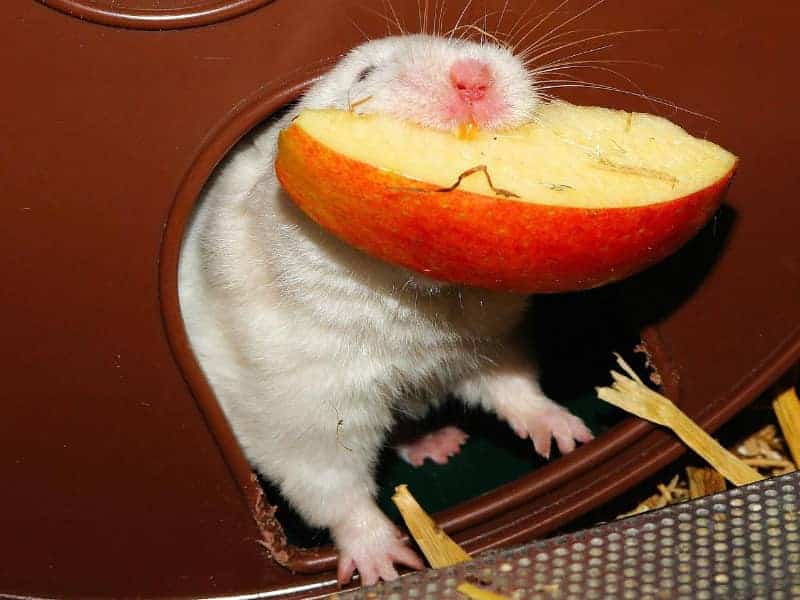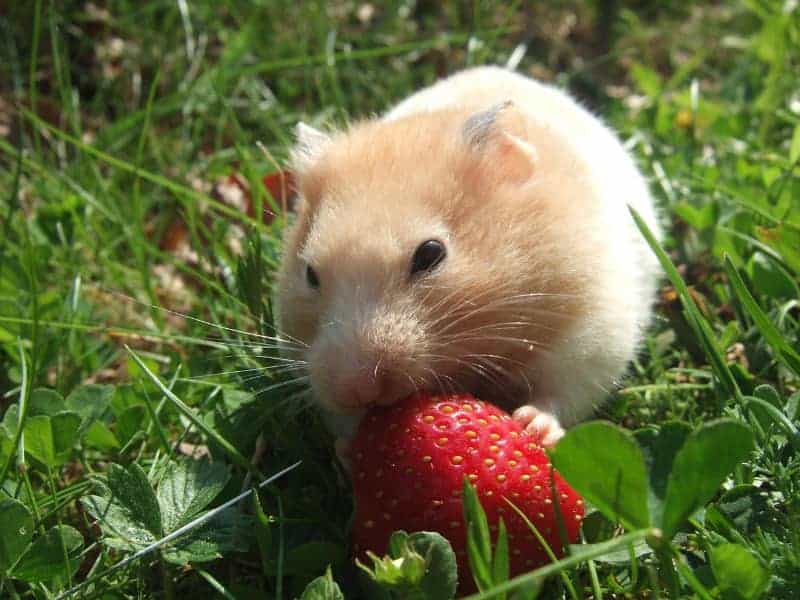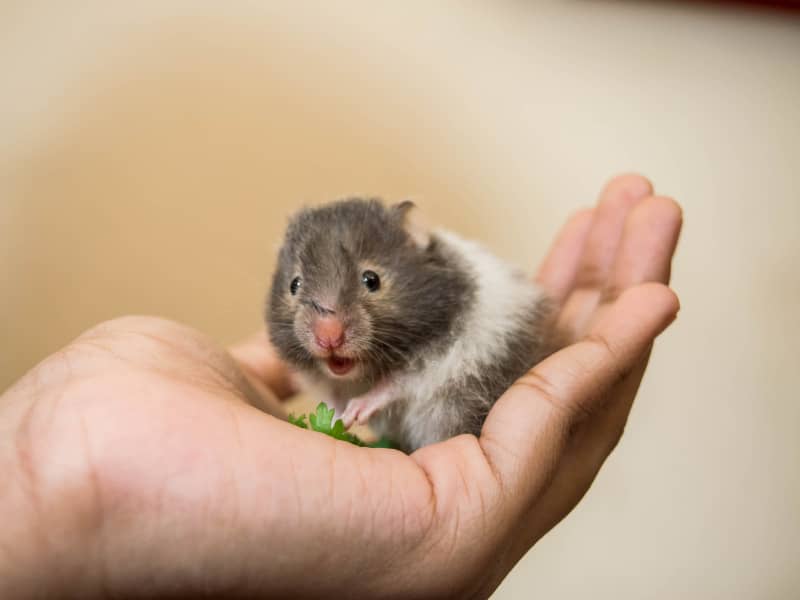
Which hamsters are the most trusting?
So you're interested in which hamsters are the most trusting? A trusting hamster can be a wonderful addition to your life. But before we dive into the different types of hamsters, it's important to understand the characteristics that make a hamster particularly trusting.
- Which hamsters are the most trusting?
- Which hamsters are the most trusting? - Temperament and behavior
- Different types of hamsters and their trusting nature
- Factors that influence trustfulness
- Tips for dealing with trusting hamsters
- Conclusion: Which hamsters are the most trusting?
- FAQ on the topic "Which hamsters are the most trusting?"
- Which hamster species is the most trusting?
- Does the age of the hamster play a role in how trusting it is?
- How can I make my hamster more trusting?
- Are there any mistakes I should avoid if I want to make my hamster more trusting?
- How important is husbandry and care for a hamster's trusting nature?
- Can genetic factors influence the trusting nature of a hamster?
- Can any hamster become trusting?
Which hamsters are the most trusting? - Temperament and behavior
A trusting hamster usually has an even temperament. It is neither aggressive nor overly anxious. You will notice that he is curious and likes to explore his surroundings without being startled by every noise or movement.
Another important aspect is the hamster's willingness to interact with you. A trusting hamster will be more inclined to come out of its den when you are around. It may even sit on your hand or let you stroke it, which is a clear sign of trust.
Social interaction with people
A trusting hamster often shows a high level of social interaction with humans. This means that they will not only tolerate you touching them, but actually enjoy it. Such a hamster is more likely to sit on your hand or let you pick it up.
It is important to note that social interaction varies from hamster to hamster. Some are naturally more sociable, while others need some time to get used to human interaction. However, a trusting hamster will generally trust you more quickly and feel more comfortable around you.
Signs of familiarity
There are various signs that a hamster is trusting. For example, a trusting hamster will be more likely to approach you when you open the enclosure. It will be less inclined to hide or run away.
Another sign is that the hamster is relaxed when you are near him. It will move less nervously or quickly and may even lie down or sleep while you are there. These are all signs that the hamster feels safe and comfortable around you.
Different types of hamsters and their trusting nature
Not all hamsters are the same, and this is especially true of their trusting nature. Different species have different temperaments, and it is important to choose the right species if you are looking for a particularly trusting companion.
Golden hamster
Golden hamsters are one of the best known and most popular hamster species. They are generally very trusting and are well suited to beginners. Golden hamsters are solitary animals and value their independence, but they can also be very loving and interactive pets.
They are curious and like to explore their surroundings. If you have a golden hamster, you will notice that they will often come out of their den to greet you when you are around. They are also known to adapt relatively quickly to human interaction and are less shy than other hamster species.
Dwarf hamster (Campbell, Dzungarian, hybrid)
Dwarf hamsters are another popular choice and come in different subspecies such as the Campbell, Djungarian and hybrid dwarf hamster. These small creatures are often very lively and curious, making them entertaining pets.
Compared to golden hamsters, they are often a little shyer and may need more time to get used to human interaction. But with patience and gentle handling, they too can become very trusting. Djungarian dwarf hamsters in particular are known for their friendly and less aggressive nature.
Roborowski hamster
Roborowski hamsters are the smallest and often the fastest hamsters. They are incredibly curious and active, which makes them interesting to watch. However, they are often less trusting compared to golden or dwarf hamsters.
They are rather shy and it can take a while for them to get used to human interaction. However, if you are prepared to invest time and patience, even Roborowski hamsters can become tame, although they usually prefer to be watched rather than handled.
Chinese striped hamster
Chinese striped hamsters are a lesser known but still interesting hamster species. They are usually quite trusting and tend to be less aggressive or fearful. These hamsters are often very curious and enjoy exploring their surroundings.
They are also known to do well with human interaction and get used to being handled by humans relatively quickly. If you are looking for a trusting and interesting hamster, a Chinese striped hamster could be a good choice.
Teddy hamster
Teddy hamsters are a subspecies of the golden hamster and resemble them in many ways, including their trusting nature. They are often very friendly and enjoy human interaction. Their fur is longer than that of ordinary golden hamsters, which makes them particularly cute.
Like golden hamsters, teddy hamsters are generally very trusting and adapt quickly to human interaction. They are an excellent choice if you are looking for a trusting and affectionate hamster.
Factors that influence trustfulness
The trusting nature of a hamster depends not only on its species, but also on a number of other factors. These can range from socialization to grooming. Let's take a closer look at these factors.
Age and socialization
Younger hamsters are often more flexible and adaptable when it comes to getting used to people. A hamster that has had positive experiences with people at a young age is likely to be more trusting than one that has not.
Socialization plays a crucial role in the development of a hamster's temperament. A well-socialized hamster will be less anxious and less prone to stress, making it more open to interaction with you. It is therefore advisable to get a hamster used to human touch and interaction as early as possible.
Keeping and care
The way you keep your hamster can also have a big impact on its trusting nature. A hamster that lives in a clean, safe and stimulating environment is likely to be happier and therefore more trusting.
Make sure that the enclosure is large enough and that your hamster has enough opportunities to hide, climb and play. A happy hamster is often a trusting hamster. Regular, but not intrusive, interaction can also help to gain your hamster's trust.
Genetic factors
Although socialization and care are important, genetic factors also play a role in a hamster's trusting nature. Some hamsters are naturally more curious and open to human interaction, while others may be more shy or reserved.
It is difficult to predict how trusting a hamster will be, but if you have the opportunity to find out more about the parent animals, this can give you some clues as to the potential temperament of the hamster.
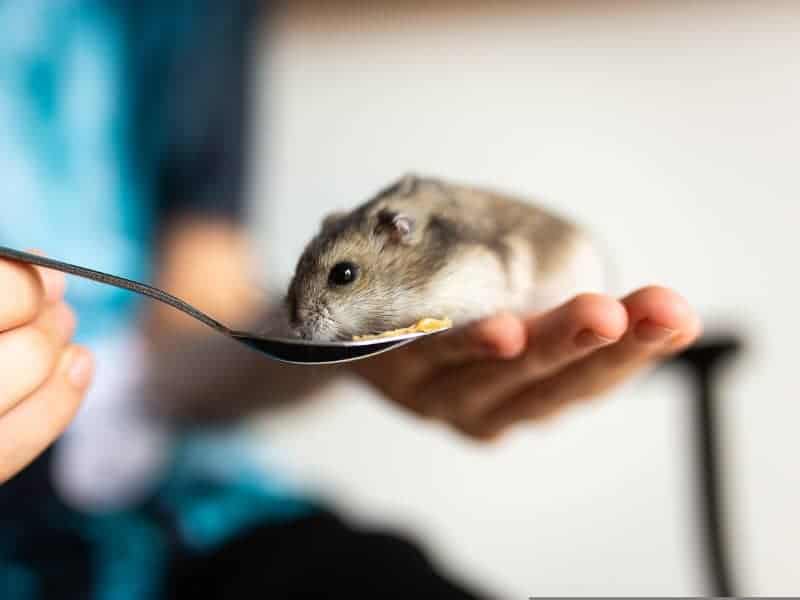
Tips for dealing with trusting hamsters
Now that you know which hamster species tend to be more trusting and which factors influence their trusting behavior, it's time to give you some practical tips on how to handle these little balls of fur.
Familiarization and training
Habituation is a gradual process and patience is key. Start by holding out your hand to your hamster and letting him get used to your smell. You can also place a small treat in the palm of your hand to pique the hamster's interest.
After a few days of acclimatization, you can try to pick up the hamster carefully. Make sure that you do not frighten him or move him too quickly. Over time, the hamster will learn that it can trust you and it will feel more comfortable being handled by you.
Avoid common mistakes
There are some common mistakes that can have a negative impact on a hamster's trusting nature. One of these is to overtax the hamster. Try not to lift the hamster too long or too often, especially in the first few days of habituation.
Another mistake is waking the hamster to interact with it. Hamsters are nocturnal, and it's best to handle them during their active hours. Waking a hamster can cause stress and discomfort, which can affect their trusting nature.
Positive reinforcement
Positive reinforcement is an effective method of gaining your hamster's trust. Every time the hamster shows a desired behavior, such as climbing onto your hand, reward it with a small treat or a gentle stroke.
These positive experiences will help the hamster to gain confidence more quickly and become more trusting. However, it is important to keep the rewards in moderation to avoid obesity or health problems.
With these tips and tricks, you should be able to build a trusting relationship with your hamster. A trusting hamster can be a wonderful addition to your life, and with the right care and attention you will experience many happy moments with your furry friend.
Conclusion: Which hamsters are the most trusting?
A hamster's trusting nature is the result of a combination of factors, including the hamster species, age, socialization and general care. While some hamster species, such as the golden hamster and the teddy hamster, are generally considered more trusting, individual factors also play an important role.
With patience, positive reinforcement and loving care, you can build a deep and trusting relationship with your hamster. It is important to avoid common mistakes and not to overtax or stress your hamster. A trusting hamster can be a wonderful addition to your home and give you many years of pleasure.
FAQ on the topic "Which hamsters are the most trusting?"
Which hamster species is the most trusting?
Golden hamsters and teddy hamsters are generally considered to be very trusting hamster species. They are often less shy and adapt more quickly to human interaction.
Does the age of the hamster play a role in how trusting it is?
Yes, younger hamsters are often more flexible and adaptable. It is easier to get them used to human interaction, which makes them more trusting over time.
How can I make my hamster more trusting?
Patience and positive reinforcement are key to habituation. Start with short interactions and gradually increase the duration. Reward the hamster for desired behavior to build trust.
Are there any mistakes I should avoid if I want to make my hamster more trusting?
Yes, avoid overwhelming the hamster or waking it up to interact with it. Both can cause stress and affect trusting behavior.
How important is husbandry and care for a hamster's trusting nature?
Very important. A clean, safe and stimulating home can help to make the hamster feel comfortable, which in turn promotes its trusting nature.
Can genetic factors influence the trusting nature of a hamster?
Yes, genetic factors can play a role. Some hamsters are naturally more curious and open to human interaction.
Can any hamster become trusting?
While most hamsters can become more trusting with the right care and socialization, there are always individual differences. Some hamsters are naturally shyer and need more time and patience.
Author

-
Garden animal - A life with nature
Welcome to my animal blog! My name is Dirk and I am happy to take you on my journey through the fascinating world of animals and gardening.
Born 54 years ago, I have had an insatiable curiosity for the animal world around me since childhood. Although I have moved professionally in other industries, my true passion has always been animals and nature. It is remarkable how a small garden has become such an important part of my life.
Many of my fondest memories are associated with the animals that share our home. Whether it's the curious squirrels that scurry across the trees in the morning, the colorful variety of birds that visit our feeders, or the busy bees and butterflies that pollinate our flowers, every moment with them is invaluable to me.
This blog is my contribution to share my experiences, discoveries and insights with like-minded people. Here I will share stories of unforgettable encounters with animals, give tips on gardening and creating wildlife-friendly habitats, and take you on my journeys through nature.
Thank you so much for being here!
Cordial,
Dirk aka garden animal
Last posts
- 27. February 2024PetsVeganes Hundefutter – Grün und Gesund?
- 18. January 2024ChickensOregano für Hühner
- November 27, 2023HamsterDiurnal hamsters
- November 24, 2023HamsterHamster hammock

